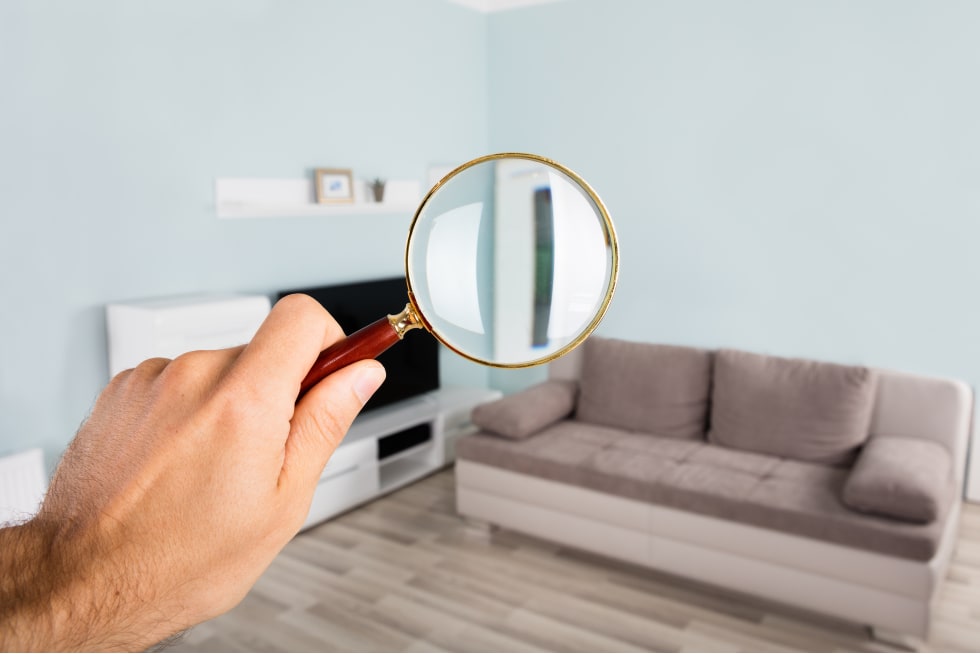What to Know About an Apartment Lender Inspection?
- Media Dept.
- Blog
 Financing for multifamily properties empowers a real estate investor to build or to renovate an apartment building. Ideally, an investor will be able to secure an adequate amount of money to fund the cost for specific improvements. An apartment lender inspection may be required prior to certain draw schedules.
Financing for multifamily properties empowers a real estate investor to build or to renovate an apartment building. Ideally, an investor will be able to secure an adequate amount of money to fund the cost for specific improvements. An apartment lender inspection may be required prior to certain draw schedules.
Why are Apartment Lender Inspections Important?
After securing a mortgage approval for a multifamily apartment building, an investor might eagerly anticipate the day that the loan proceeds will be available.
For a minor project, an apartment lender inspection might not be required.
Although, in situations where an investor is scheduled to receive a substantial amount of money, funding for property upgrades or more money than the subject property’s appraised value, an apartment lender inspection may be required.
Apartment inspections are important for lenders and for investors.
Real estate secured loans enable investors to generate income and gain equity if property appreciation occurs. Apartment lenders benefit from the interest that is earned from issuing the mortgage loan which is secured against the property.
Lenders and borrowers could encounter bad experiences when money toward specific projects are squandered away.
For instance, if a lender provides funding to install a roof on an apartment building and the work is shoddy or incomplete, this will present a problem. An apartment without a solid roof could cause many issues and would not meet the after-repair-value for the project.
In this scenario, additional money would be needed to complete the apartment building improvements. Setbacks and funding shortages can cause a variety of delays that could cause an investor to lose a lot of money.
Extended construction time frames could push out the date that an investor can collect rental income. Although, a variety of carrying costs, such as the mortgage payment, property taxes, insurance and utilities may still require ongoing monthly payments.
Therefore, it is important for lenders to perform inspections at certain intervals.
When are Apartment Lender Inspections Performed?
Time is of the essence, when scheduled work must be completed to draw against additional funds for commercial property improvements.
Before each scheduled draw period, an inspection is conducted to ensure that it is okay to allocate the next round of funds for the project.
For instance, if a HVAC contractor is scheduled to provide a heating and cooling system within an apartment building, a variety of inspections may be performed along the way.
A licensed building inspector might check to see if an air-handling system has been professionally installed. If various code requirements are met, another draw may be issued for the ductwork, vents and the thermostat controls for each apartment unit.
A similar framework might be followed before funds are drawn for electrical, plumbing, roofing and carpentry work.
However, a failed inspection will lead to follow up evaluations until the deficiency is cured and certain penalties might also be incurred.
How to Pass an Apartment Lender Inspection?
Generally, an investor will know when an inspection will be performed.
After the work has been performed for a previously issued draw, an apartment lender inspection may be needed to release more money toward the project.
There are no specific ways to pass a property inspection. An investor should ensure that the work which will be inspected is completed on time and with acceptable quality standards.
An investor who is frequently on-site of a commercial building project will have a pulse on the progress that takes place. With a thorough follow up process and communication with key construction personnel, an investor may be able to consistently pass apartment lender inspections.
Apartment Lender Inspection for Cash-Out Refinance
An investor who wants to refinance an existing commercial mortgage loan may be informed about an apartment lender inspection.
A brief check might be performed to ensure that the interior apartment units are in fair condition. An inspector may check several apartment units to verify that the electrical wiring meets local code requirements.
Inspections may also be performed to validate the number bedrooms and bathrooms that are within an apartment building.
An apartment building that is in great condition could be instrumental toward the terms of a cash-out refinance, such as the property’s loan-to-value, the borrower’s mortgage interest rate and the amount of money that an investor can borrow.
Prior to funding a mortgage loan for an apartment, an appraisal and certain property inspections can provide the confidence that a lender needs to finalize the transaction.
Summary
Whether an investor wants to renovate an income-producing property or to obtain a cash-out refinance, an apartment lender inspection might be required.
Knowing a commercial property’s true condition is valuable information for lenders and for investors.
Nationwide apartment building loans are available for properties with verifiable rent rolls that are within an acceptable debt service coverage ratio.
Contact Direct Apartment Lenders for more information about mortgage loans for commercial properties.

